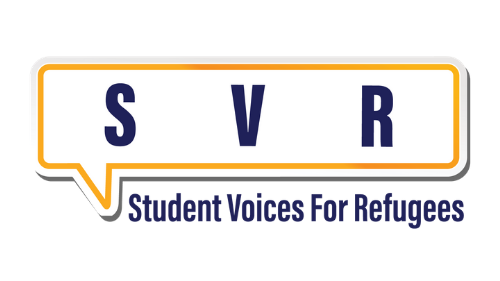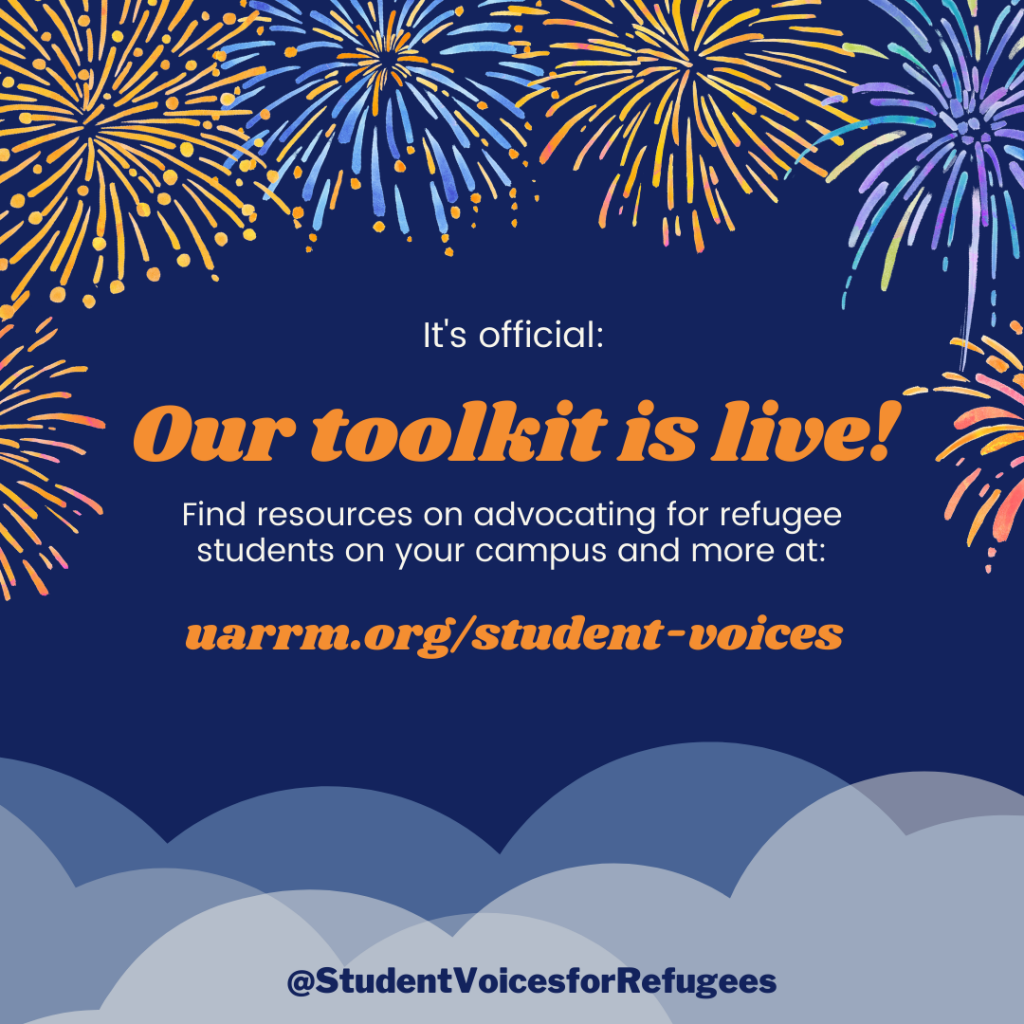By Dani Salvatore
Peace and Conflict Studies students are engaged with many organizations and events across the UNCG Community. One such organization that aligns very closely with the Department of Peace and Conflict Studies is Student Voices for Refugees.
Student Voices for Refugees is a ‘super-network’ of student leaders who represent various higher education institutions. They work to create an inclusive higher education community where refugees and displaced persons have greater access and freedom to study at U.S. colleges and universities.
Peace and Conflict Studies M.A. Student Marc Caron
Marc Caron (MC) is joined by another Peace and Conflict Studies Master’s student, Christelle Barakat (CB) in promoting Student Voices for Refugees at UNCG.
SVR recently launched the SVR Toolkit, which is a collection of educational resources created to connect advocates at higher education institutions with the knowledge and materials needed to create scholarship and mentorship programs for refugees and displaced students.
Marc Caron and Christelle Barakat are interviewed by Dani Salvatore regarding the project and toolkit.
DS: HOW DID YOU GET INVOLVED WITH STUDENT VOICES FOR REFUGEES?
MC: I answered an email from SVR that was sent to Peace and Conflict Studies students. After a short application process, I was given the chance to accept a volunteer position by SVR leadership. I jumped at it!
CB: I learned about Student Voices for Refugees (SVR) through Dr. Geneviève Souillac’s course announcements and through an email from Marc. Marc was already a steering committee member within SVR before I joined. He works more on the scholarship side than on the mentorship side. I joined the mentorship group as a volunteer and have the opportunity to interview and correspond with remarkable individuals from founders to mentors, and volunteers at edSeed and VIP.fund and Article 26 Backpack.
DS: HOW DOES STUDENT VOICES FOR REFUGEES RELATE BACK TO THE FIELD OF PEACE AND CONFLICT STUDIES?
MC: As practitioners, we want to build equitable communities by breaking down barriers that prevent individuals from reaching their full potential. SVR was created to help underserved refugee populations reach their full potential. Further, there are mutual benefits to the university including increasing diversity, enriching student experiences, and providing a platform for refugee students to take what they learn and help increase equity and justice in their own communities.
CB: I see many linkages between SVR and our field. First and foremost, refugees are forcibly displaced from their countries, most often due to conflict which makes it unsafe for them to stay in their homes and regions. Furthermore, a substantial part of Peace and Conflict Studies includes human rights. Education is a right for refugees and we should aspire to prevent a lost generation. Inclusion is another important element, particularly ensuring that everyone, no matter their background, has access to education.
DS: HOW DO YOU HOPE THE TOOL KIT WILL BE USED AT UNCG? WHAT ABOUT ITS USE IN THE DEPARTMENT OF PEACE AND CONFLICT STUDIES ?
CB: The toolkit is meant to be used by refugees and migrants, but also by universities to foster more inclusive environments for refugees and to start thinking about student-to-student or administration-to-student mentorship opportunities.
As Peace and Conflict Studies students, I think that we are well situated to understand migration and its implications and I believe many more of us can be involved with SVR and other organizations working to serve and assist migrants and refugees like UNCG’s Center for New North Carolinians (CNNC).
MC: As a university that is focused on social mobility and making a difference in student’s lives, I hope UNCG administration will seriously consider starting a scholarship initiative for refugee students using the guidelines contained in our toolkit. In collaboration, I think the Department of Peace and Conflict Studies can be that conduit for supporting refugee student assimilation into our campus community, construct a mentorship program to help refugee students connect with their peers, and become a department where refugee students can pursue a field study that is rich and diverse.
DS: ARE THERE ANY OTHER PROJECTS IN THE WORKS FOR SVR?
MC: SVR is now in a transition phase. The last year has been spent gathering and analyzing information and data on refugee mentorship and scholarship programs used to launch our interactive toolkit. We’ll continue to add information to the toolkit, making it more robust and extensive. Additionally, we want to build a network of student advocates and involve university administration to begin implementing the refugee scholarship and mentorship initiatives on their campuses. The goal is 15×30 which is an United Nations High Commissioner on Refugees (UNHCR) target – ensuring that 15 percent of young refugees have access to higher education by 2030.
For more information regarding Student Voices for Refugees or the Tool kit please visit the SVR website or reach out to Marc Caron at [email protected]

